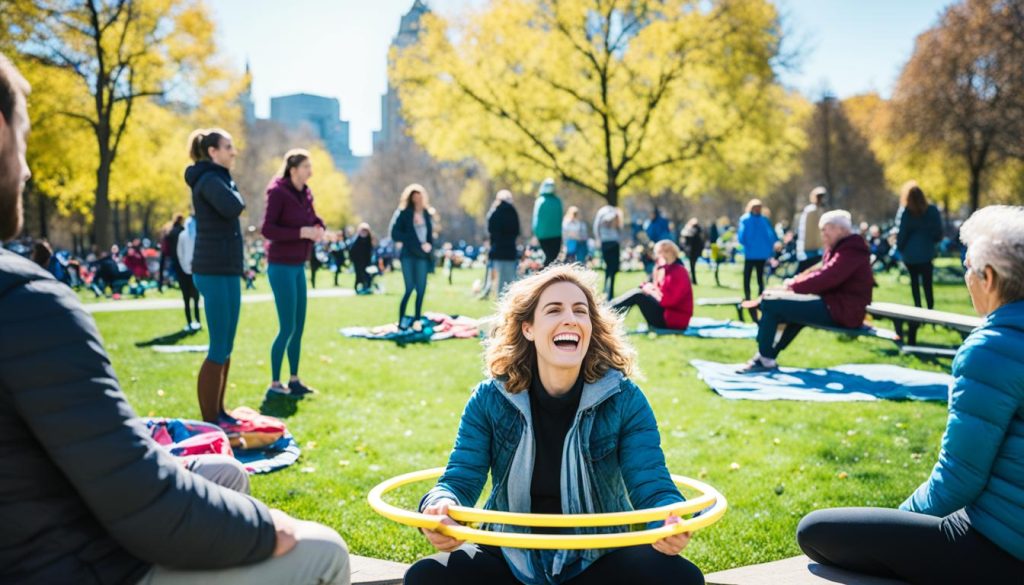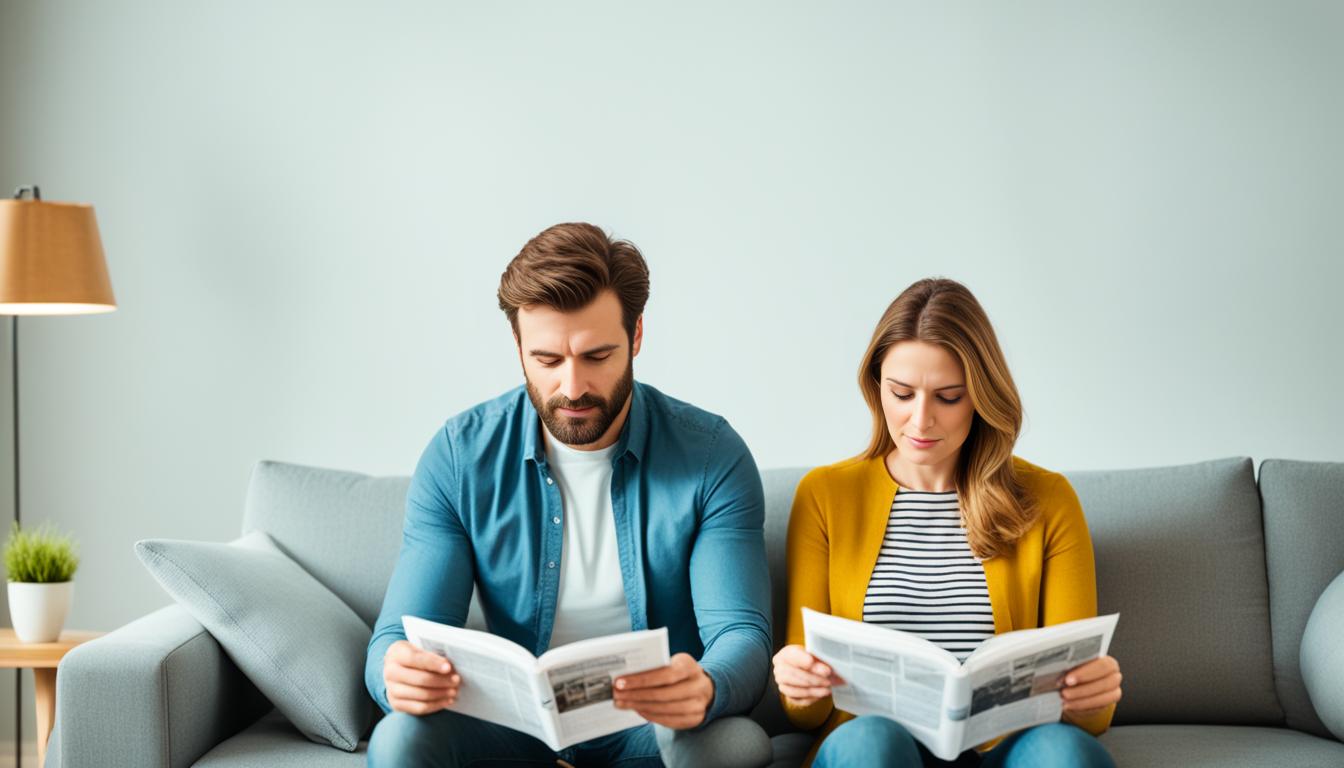As a man who spent a decade loving a woman with a chronic illness, I understand the significance of personal space in relationships. Sharing my wife’s journey with endometriosis and fibromyalgia has not only shaped me into the man I am today but also sparked my love for blogging. Through my writing, I have found solace and therapy, allowing me to escape the new normal, advocate for my ill partner, and secure our future financially. The experience has reinforced the importance of maintaining personal space in a partnership, fostering independence, and nurturing individuality in a couple.
Living with someone who faces daily challenges due to chronic illness has taught me the value of finding balance in a relationship. While providing support and care for my wife is crucial, I have come to realize that carving out time for self-care and self-reflection is equally necessary. Taking moments of solitude to recharge and engage in activities I enjoy has helped me maintain emotional well-being and be a better partner to my wife. It has allowed us both to thrive individually and strengthen our bond as a couple.
Through my blog, I have been able to share our journey, raise awareness about chronic illnesses, and connect with others facing similar challenges. Blogging has become an outlet for me to express my thoughts, emotions, and experiences, enabling me to advocate for my wife and others who may be struggling. Additionally, it has provided us with a platform to share valuable information, tips, and resources, while also establishing a source of income that supports our future financial security.
By embracing personal space and alone time, couples can navigate through the new normal that chronic illness brings. It allows each partner the opportunity to care for themselves, maintain their independence, and foster a sense of individuality. Prioritizing personal space not only strengthens the relationship but also emphasizes the importance of self-care and emotional well-being. It is a vital component of creating healthy boundaries and ensuring a fulfilling and sustainable partnership.
The Benefits of Personal Space in Romantic Relationships
Personal space is not only important for individuals, but it also plays a crucial role in fostering healthy and fulfilling romantic relationships. Creating and maintaining personal space within a partnership offers a multitude of benefits that contribute to the overall well-being and longevity of the relationship.
Benefits of Personal Space:
- Trust and Security: Allowing personal space in a relationship builds trust and a sense of security between partners. It demonstrates respect for each other’s individuality and independence, creating a foundation of trust within the partnership.
- Personal Growth: Personal space provides an opportunity for personal growth within a relationship. It allows individuals to pursue their own interests, hobbies, and goals, fostering self-discovery and personal development.
- Maintaining Identity: By having personal space, individuals can maintain their own identities within the relationship. It prevents the merging of identities, ensuring that both partners can retain their unique qualities and interests.
- Preventing Codependency: Personal space acts as a safeguard against codependency, where one partner becomes overly reliant on the other for validation and self-esteem. It encourages a healthy level of independence and self-sufficiency.
- Reducing Conflict: Having personal space reduces conflicts in relationships by allowing individuals to process their thoughts, emotions, and experiences independently. It promotes self-reflection and enables partners to approach conflicts with a calmer and more rational mindset.
By understanding and embracing the benefits of personal space, couples can cultivate a stronger and more resilient connection. Balanced personal space contributes to the overall harmony, satisfaction, and longevity of a romantic relationship.
| Benefits of Personal Space: | How it Enhances the Relationship: |
|---|---|
| 1. Trust and Security | – Builds a strong foundation of trust – Provides a sense of security |
| 2. Personal Growth | – Fosters self-discovery and development – Expands individual interests and experiences |
| 3. Maintaining Identity | – Preserves individuality within the relationship – Allows partners to maintain their unique qualities and interests |
| 4. Preventing Codependency | – Encourages healthy independence – Reduces reliance on each other for validation |
| 5. Reducing Conflict | – Facilitates self-reflection and emotional processing – Promotes a calmer and more rational approach to conflicts |
How Lack of Personal Space Can Lead to Relationship Problems
A lack of personal space in a relationship can have detrimental effects, causing a range of problems that can strain the bond between partners. Understanding the impact of this issue is essential for maintaining a healthy and thriving relationship.
The Problems Caused by Lack of Personal Space
- Resentment in a Relationship: When individuals do not have enough personal space, they may start to feel resentful and frustrated. They might feel like their needs and desires are constantly being overlooked or dismissed.
- Loss of Individuality: Without personal space, individuals can lose their sense of identity within the relationship. They may find themselves prioritizing the needs and wants of the partnership over their own, leading to a loss of self.
- Conflicts and Tension: The lack of personal space can create conflicts and tension between partners. Without the opportunity to recharge and engage in independent activities, individuals may become irritable and more susceptible to arguments and disagreements.
- Codependency: A lack of personal space can contribute to codependency in a relationship. One partner may become overly reliant on the other for emotional or practical needs, resulting in an unhealthy dynamic.
- Boredom and Lack of Excitement: When personal space is restricted, the relationship can become monotonous and predictable. The absence of new experiences and individual exploration can lead to a decline in excitement and passion.
To illustrate the impact of a lack of personal space in a relationship, consider the following scenarios:
| Scenario | Effects |
|---|---|
| A couple spends all their free time together, rarely pursuing independent hobbies or interests. | – Feelings of suffocation and the inability to explore personal passions – Increased likelihood of conflicts due to the lack of personal time and space |
| One partner constantly monitors the other’s activities and demands constant attention. | – Resentment and frustration due to lack of privacy and autonomy – Loss of individuality and personal growth |
| A couple relies heavily on each other for emotional support and struggles to function independently. | – Codependency and the erosion of personal boundaries – Decreased self-esteem and autonomy |

Addressing the issues caused by a lack of personal space is crucial for the health and longevity of a relationship. By recognizing the importance of personal space and actively working towards creating a balance between togetherness and independence, partners can foster a more harmonious and fulfilling connection.
The Science Behind Personal Space and Its Impact on Relationships
Scientific evidence supports the importance of personal space in relationships and its profound impact on mental and emotional well-being. Numerous studies have shown that couples who prioritize personal space experience higher levels of happiness and satisfaction in their relationship.
When we give each other personal space, our brains are provided with an opportunity to rest and process information. This downtime allows us to recharge and promotes better mental and emotional health within the relationship. By taking time apart, individuals can reflect on their own thoughts and emotions, fostering personal growth and self-discovery.
Additionally, personal space acts as a preventative measure against conflicts and tensions in relationships. When we allow ourselves and our partners the time and space for rest and recuperation, we enhance our ability to approach challenges with a refreshed perspective. This leads to more effective communication, problem-solving, and conflict resolution.
Furthermore, personal space provides an essential outlet for indulging in individual interests, hobbies, and self-care activities. Engaging in activities alone allows individuals to fully immerse themselves and find joy, which contributes to an overall sense of fulfillment and contentment in the relationship.
The Benefits of Personal Space in Relationships:
- Enhanced mental and emotional well-being
- Prevention of conflicts and tensions
- Promotion of personal growth and self-discovery
- Opportunity for rest and rejuvenation
- Fostering individual interests and hobbies
By understanding the scientific evidence supporting personal space in relationships, we can begin to prioritize and nurture this essential aspect of a healthy partnership. Now that we have explored the science behind personal space, let’s delve into how to effectively communicate and establish boundaries to maintain a healthy balance of intimacy, independence, and personal well-being.
| Scientific Evidence for Personal Space in Relationships | Impacts on Relationships |
|---|---|
| Provides opportunity for self-reflection and personal growth | Enhanced communication and conflict resolution |
| Aids in mental and emotional well-being | Prevention of conflicts and tensions |
| Allows for rest and recuperation | Increased satisfaction and happiness |
Setting Boundaries: How to Communicate Your Need for Personal Space
In any relationship, setting boundaries is essential for a healthy and fulfilling connection. When it comes to personal space, it is crucial to communicate your needs effectively to your partner. By expressing your desire for personal space in a clear and respectful manner, you can establish healthy boundaries that promote individuality and strengthen your relationship.
Here are some tips on how to communicate your need for personal space:
- Be honest and direct: Open and honest communication is the cornerstone of a strong relationship. Speak openly with your partner about your personal space needs without fear or hesitation. Being direct and sincere in your communication helps build trust and ensures a mutual understanding of each other’s boundaries.
- Respect your partner’s boundaries: Just as you have personal space needs, your partner may have their own as well. It is essential to show respect for their boundaries and give them the space they need. By acknowledging and honoring their need for personal space, you foster a sense of mutual respect and understanding in your relationship.
- Practice healthy communication: Healthy communication involves active listening and understanding. When discussing personal space, make sure to listen attentively to your partner’s thoughts and feelings. Validate their emotions and strive to find a balance that meets both of your needs.
- Reassess boundaries regularly: Boundaries can change over time as individuals grow and evolve. It is important to revisit and reassess your boundaries as your relationship progresses. Regularly communicate with your partner about your evolving personal space needs to maintain a healthy balance in your relationship.
Example of a Personal Space Conversation
Imagine a scenario where you feel the need for personal space:
You: “Hey, I wanted to talk to you about something important. I’ve been reflecting on our relationship, and I believe it’s essential for us to establish clearer boundaries for personal space. I value and love our time together, but I also need some alone time to recharge and pursue my individual interests. I hope you understand.”
Your Partner: “Of course, I understand. I appreciate your honesty and openness. I also value our relationship and understand that personal space is crucial. I have my own needs for alone time as well. Let’s work together to find a balance that respects both our personal space requirements.
You: “Thank you for understanding. I believe it’s important for us to respect each other’s boundaries and communicate openly about our personal space needs. This way, we can nurture our individuality and maintain a healthy and fulfilling relationship.”

| Benefits of Setting Boundaries in Relationships |
|---|
| 1. Promotes respect and understanding between partners |
| 2. Allows individuals to maintain their sense of identity |
| 3. Reduces conflicts and fosters healthier communication |
| 4. Provides space for personal growth and self-care |
| 5. Creates a stronger, more fulfilling relationship |
Balancing Intimacy and Independence in Relationships
Finding the right balance between intimacy and independence is essential for maintaining a healthy and fulfilling relationship. It requires understanding the needs of both partners and effectively communicating to ensure that each person’s needs are met. By achieving this balance, couples can nurture their individuality while still fostering a deep connection.
In order to balance intimacy and independence, it’s important to prioritize quality time together while also allowing for personal space. This means carving out dedicated time to spend with your partner, engaging in activities that you both enjoy, and fostering meaningful conversations. At the same time, it’s equally important to have time for yourself to pursue individual hobbies, interests, and self-care.
A table can be used to outline strategies for effectively balancing intimacy and independence in a relationship:
| Strategies for Balancing Intimacy and Independence |
|---|
| 1. Prioritize quality time together |
| 2. Communicate openly and honestly about your needs |
| 3. Set boundaries and respect each other’s personal space |
| 4. Encourage and support each other’s individual interests and goals |
| 5. Foster independence and self-care |
| 6. Regularly reassess and adjust as needed |
Finding the right balance between intimacy and independence requires ongoing effort and effective communication. It’s important to remember that each relationship is unique, and what works for one couple may not work for another. By actively focusing on maintaining a healthy balance, couples can strengthen their connection, nurture their individuality, and create a fulfilling and harmonious relationship.
Why Do We Need Space In A Relationship?
In any relationship, maintaining individuality is crucial. It’s important to prevent clinginess, foster independence, and avoid suffocation. By allowing personal space in a relationship, you give both partners the freedom to think, explore their own interests, and stay true to themselves. This space promotes healthy communication, prevents codependency, strengthens the bond, and keeps the relationship exciting.
When you maintain individuality in a relationship, you create a balanced dynamic where both partners can thrive. Personal space allows you to pursue your own goals, hobbies, and passions without feeling suffocated or tied down. It gives you the opportunity to prioritize self-care and engage in activities that bring you joy and fulfillment. By maintaining independence, you bring a sense of freshness and excitement into the relationship.
Preventing clinginess is essential for a healthy partnership. When you give each other space, you avoid becoming overly dependent on your partner. This independence allows both individuals to grow and develop individually, which in turn strengthens the relationship. It also prevents feelings of resentment or suffocation, ensuring that both partners can breathe freely and comfortably within the relationship.
Fostering independence in a relationship is a vital component of long-term success. By encouraging each other to have personal space, you create an environment that nurtures growth and self-discovery. Each partner can pursue their own dreams and ambitions, which ultimately benefits the relationship as a whole. By honoring each other’s need for independence, you build a strong foundation based on trust, respect, and support.
Preventing suffocation is another reason why personal space is necessary in a relationship. When you give each other room to breathe, you avoid the risk of becoming too entangled in each other’s lives. This space allows for clear boundaries and keeps the relationship from becoming overwhelming or suffocating. It’s essential to maintain a sense of self while being part of a couple, and personal space facilitates this delicate balance.
Ultimately, personal space in a relationship is crucial for maintaining individuality, preventing clinginess, fostering independence, and avoiding suffocation. It allows both partners to think and act autonomously, promoting personal growth and fulfillment. By giving each other space, you create a strong and resilient partnership that thrives on open communication, mutual respect, and shared experiences.

Signs You Should Give Your Partner Space
When you’re in a relationship, it’s important to be aware of your partner’s needs, including their need for personal space. Giving your partner space when they need it can prevent conflicts, foster independence, and maintain a healthy connection. Here are some signs that indicate your partner may need space:
- Constant bickering: If you find yourselves arguing or disagreeing more frequently, it could be a sign that both of you need some breathing room. Taking a step back can help diffuse tensions and allow you to regroup.
- Needing permission for everything: Feeling like you constantly need your partner’s permission to do anything can indicate a lack of personal space. Healthy relationships involve trusting each other’s judgment and allowing for independent decision-making.
- Losing attraction: If you or your partner have been feeling less attracted to each other, it might be a sign that you need some time apart. Taking a break can help reignite the spark and give you a chance to miss each other.
- Feeling stressed: If the relationship is causing excessive stress and anxiety, it’s a clear sign that both of you need some space to recharge emotionally. Taking time to focus on individual self-care can help alleviate stress and improve overall well-being.
- Neglecting other relationships and activities: Are you or your partner neglecting friendships or hobbies that were once important? This could be a sign that you both need space to reconnect with yourselves and the other aspects of your lives.
Recognizing these signs and addressing them by giving your partner the space they need is essential for maintaining a healthy relationship. Communication is key in understanding each other’s boundaries and finding a balance that works for both of you.
Signs You Should Give Your Partner Space
| Signs | Description |
|---|---|
| Constant bickering | Arguing or disagreeing more frequently |
| Needing permission for everything | Feeling the need to ask for approval in every decision |
| Losing attraction | Decreased feelings of attraction towards each other |
| Feeling stressed | Experiencing excessive stress and anxiety in the relationship |
| Neglecting other relationships and activities | Not prioritizing friendships and hobbies outside the relationship |
How To Create More (Healthy) Space In Your Relationship?
Creating more healthy space in your relationship is crucial for maintaining a strong and fulfilling bond. It involves effective communication, avoiding excessive interrogation, encouraging independence, and seeking “me time”. Here are some strategies that can help you and your partner create the space you need:
1. Effective Communication
Open and honest communication is the foundation of any healthy relationship. It is essential to express your need for personal space to your partner in a calm and respectful manner. Clearly communicate your feelings, boundaries, and expectations to ensure both partners have a mutual understanding of each other’s needs.
2. Avoid Excessive Interrogation
Constant questioning or interrogating your partner about their activities can create a suffocating atmosphere in the relationship. Trust is a key component of personal space, so avoid excessive questioning and give your partner the freedom they need to pursue their own interests. Trust their judgment and respect their privacy.
3. Encourage Independence
Encourage your partner to explore their individual interests and passions by giving them the freedom to pursue them. Support their personal growth and endeavors outside of the relationship. Recognize that both partners can have their own lives and spaces while still maintaining a strong bond.
4. Seek “Me Time”
It is important to prioritize self-care and carve out time for yourself. Find activities that bring you joy and fulfillment and make time for them regularly. Whether it’s reading a book, going for a walk, or practicing a hobby, dedicating time to yourself will recharge your energy and contribute to a healthier relationship.

| Benefits of Creating Space in a Relationship |
|---|
| Improved communication |
| Enhanced personal growth |
| Reduced conflicts |
| Prevention of codependency |
| Greater respect for boundaries |
| Increased individuality and independence |
By creating more healthy space in your relationship, you and your partner can establish a stronger bond built on trust, respect, and individuality. Remember, a balance of intimacy and independence is key to maintaining a happy and fulfilling partnership.
Is Space Apart Good For A Relationship?
Space apart in a relationship can bring numerous benefits, including maintaining individuality, avoiding co-dependency, and strengthening the relationship. When couples choose to live together but apart, each partner has the freedom to pursue their own interests and maintain their unique identity while still being committed to the relationship.
This arrangement helps prevent boredom and monotony by introducing new experiences and perspectives into the partnership. It allows for personal growth and development, ensuring that both individuals have the opportunity to explore their passions and hobbies.
Furthermore, having space apart fosters good communication. When partners have the time and distance to reflect on their own needs and desires, they can effectively convey their thoughts and feelings to each other, promoting understanding and empathy.
By encouraging independence and respecting individual boundaries, space apart prevents co-dependency from taking hold. It allows each partner to have their own social circle, activities, and personal space, creating a healthy balance between togetherness and autonomy.
Living together but apart can be an opportunity for couples to strengthen their bond. It allows them to appreciate each other’s unique qualities and maintain a sense of freshness and excitement in the relationship. The trust and commitment that come with this arrangement can deepen the connection between partners.
Conclusion
In conclusion, personal space and alone time are vital for the health and happiness of both partners in a relationship. By recognizing the importance of personal space, couples can maintain their individuality, prevent codependency, and recharge emotionally.
Setting and respecting healthy boundaries is crucial in maintaining personal space, as it allows each partner to have their own time and activities. Balancing intimacy and independence is also key, as it fosters a deep connection while still allowing room for personal growth.
Effective communication is essential in creating and maintaining personal space. It involves openly discussing needs, desires, and boundaries with your partner. By valuing personal space, couples can enhance their relationship, strengthen their connection, and facilitate self-care and self-reflection for both partners.
The need for personal space and alone time is even more critical in the new normal with chronic illness. It is essential to respect the lifestyle adaptations required for managing chronic illness while still fostering independence and nurturing the relationship. By loving and supporting a woman with a chronic illness, partners can create an environment that promotes her well-being and maintains healthy boundaries.
